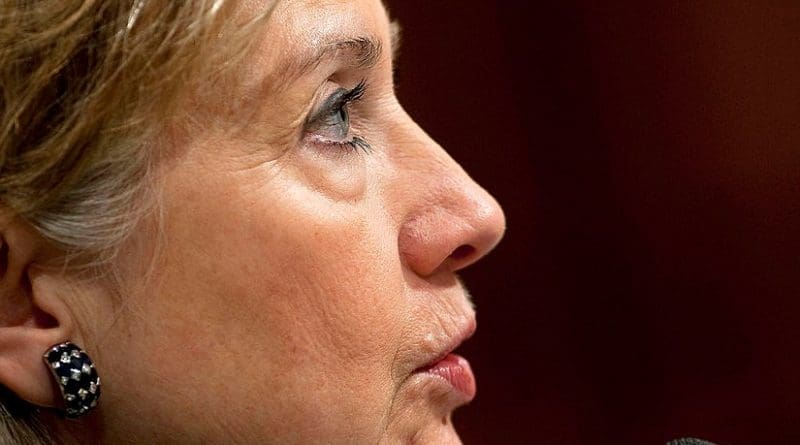Clinton’s Dubious Line On Iran – OpEd
Hillary Clinton, the top Democratic contender for the US presidency, has delivered a major policy speech on Iran that backed the Iran nuclear deal while demonizing and threatening military action against Iran, instead of evincing any understanding of the deal’s potential to cause an improvement in the hitherto hostile US-Iran relations.
Reflecting the views of her hawkish foreign policy advisers, Clinton’s “tough talk” on Iran is meant to appease the pro-Israel forces that are adamantly opposed to any rapprochement with Iran and prioritize Israel’s interests. Clinton’s promise to “deter Iran” by expanding the US’s military presence in Persian Gulf is also music to the ears of Saudi Arabia’s leadership, given the current tensions between Tehran and Riyadh.
In analyzing Clinton’s policy approach toward Iran, one is immediately struck by the deep-seated hostile tone that denotes an unreconstructed cognitive map that promises lack of fundamental change and or any “paradigmatic shift” on Iran, in rather sharp contrast to Obama’s July interview with the New York Times that hinted at such an evolution in US’s thinking on Iran. Unfortunately, even Obama has been inconsistent and, under pressure at home by the deal’s opponents, has somewhat reversed himself in various speeches on Iran, constantly hammering the point on “snap back” sanctions in the event of an Iranian noncompliance. So much negative discourse on Iran’s potential noncompliance, instead of praising Iran’s pragmatism and coming to the table in good faith, is stereotypical American behavior toward Iran that is sadly quite familiar.
In her speech on September 9th at a Washington think tank, Clinton in fact missed the opportunity to offer an olive branch toward Iran and, instead, painted the nuclear deal as part of a broader aggressive US strategy in the Middle East, one that promises a more interventionist US policy on Syria. Naturally, this does not bode well for the future of US-Iran relations if Clinton is elected as the next US president, pre-committed to a one-dimensional “containment strategy” vis-a-vis Iran.
A clue to the inappropriateness and highly defective nature of Clinton’s Iran approach can be found in the contrasting European toward Iran since July, reflected in the stream of top diplomatic Tehran visits, such as by Austria’s President and foreign ministers of France, England and a number of other European countries. Yet, instead of welcoming the new thaw in Iran-West relations afforded by the landmark nuclear agreement, the US reaction has been negative and hostile. What is conspicuously absent is a new cooperative mood that would seek to telescope the nuclear agreement to a broader dialogue with Iran on issues of shared interests.
Clearly, this is not a wise and prudent European approach toward Iran and does not even serve US’s own interests. Clinton should pay more attention to the views of those US policy-experts who counsel on the need for a new US policy on Iran that would go beyond the familiar “coercive diplomacy” permeating Clinton’s unimaginative and wholly unproductive line on Iran.
This article appeared at Iranian Diplomacy.

